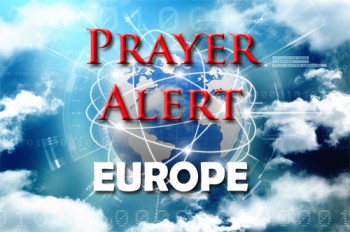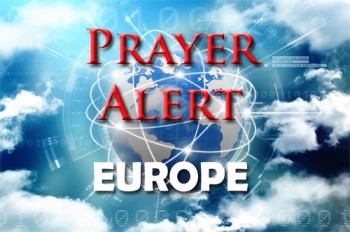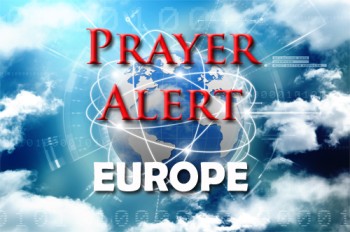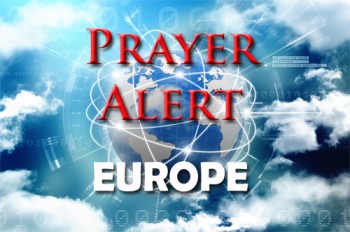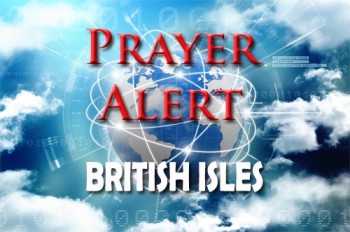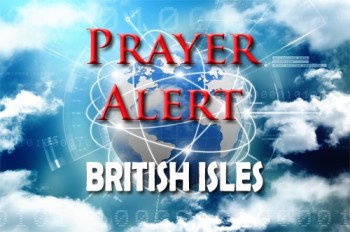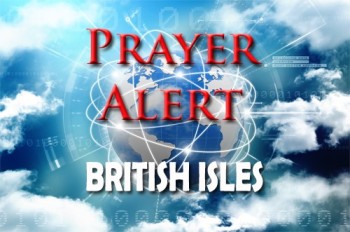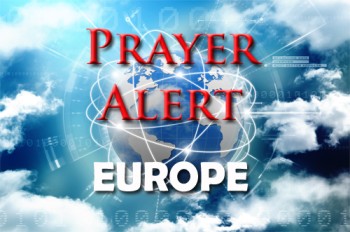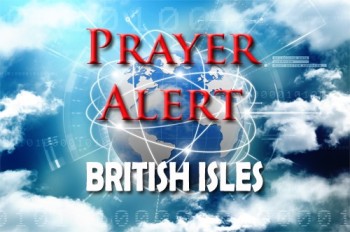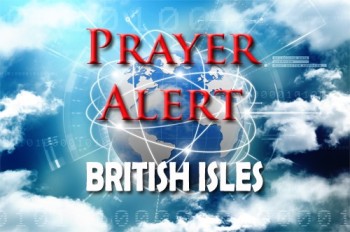Displaying items by tag: NATO
Russia and Belarus conduct military exercises as NATO feels the heat
Watched by US military officers and delegates from Turkey and Hungary, Russia and Belarus have launched large-scale military exercises across their territories and nearby seas, showcasing advanced weaponry and tactical nuclear capabilities near NATO’s eastern flank. The drills, involving roughly 6,800 troops as well as fighter jets and missiles, practised modern combat tactics like drone-assisted infantry assaults. Relations between Washington and Minsk seem to be improving; Belarus has recently released 52 political prisoners, prompting the Trump administration to ease some sanctions. Meanwhile, NATO allies remain uneasy after Russian drones repeatedly violated Polish and Romanian airspace. European leaders worry the exercises highlight Russia’s growing nuclear reach and evolving battlefield strategies, while Moscow insists it is open to dialogue but blames Western nations for obstructing progress toward resolving regional tensions.
Poland: reactions to Russia’s drone attacks
Russia’s unprecedented drone strikes on Poland on 9 September are framed as both a test and a warning to Europe and NATO. Moscow, adept at ‘salami-slicing’ escalation, is probing allied resolve with incremental provocations - from bombings in Kyiv to GPS jamming: each crossing a new line while eliciting mostly rhetoric. Similar tactics enabled the 2014 seizure of Crimea, and hitting Polish territory is a larger slice meant to measure the alliance’s willingness to honour Article 5. A direct military response is deemed unlikely, yet inaction risks projecting weakness and inviting the next escalation. Sanctions talk will grow, but prior rounds neither deterred invasion nor reversed it; energy sanctions that might bite remain politically constrained. The strikes also serve as a warning against deeper Western involvement in Ukraine: Russia’s deniable, ambiguous tactics could complicate any future allied deployment after a ceasefire. The core question: can NATO deter without stumbling into a wider war?
Ukraine: Estonia, Lithuania, Latvia all willing to contribute troops for security guarantees
Estonia’s president, Alar Karis, has said it is prepared to contribute troops to an international reassurance force that the ‘Coalition of the Willing’ plans to send to Ukraine as a post-ceasefire security guarantee. He said Estonia is not overly concerned that this would weaken NATO’s eastern flank, though discussions with alliance leaders continue. Lithuania and Latvia are also willing to participate, but Poland has declined, citing the need to protect its own borders. The reassurance force would be deployed only in non-contact areas within Ukraine. NATO secretary-general Mark Rutte noted that while NATO itself will not formally participate, the alliance is quietly discussing how to ensure resources are not overstretched. About 80,000 US troops are currently in Europe, but there could be a reduction in numbers as Washington’s foreign policy pivots towards the Indo-Pacific. The 'Coalition of the Willing' will meet again on 4 September; the security guarantees it will aim to provide for Ukraine following a truce are almost ready, but confirmation of US support is now needed.
NATO summit reaffirms collective defence, omits criticism of Russia
NATO allies, including the USA, have reaffirmed their ‘ironclad commitment’ to collective defence at a brief summit in The Hague. The final five‑paragraph communiqué emphasised unity, describing Russia as a ‘long‑term threat’ but stopping short of explicitly condemning its invasion of Ukraine, marking a shift from prior statements. In the only reference to the war, it said: ‘Allies reaffirm their enduring sovereign commitments to provide support to Ukraine, whose security contributes to ours.’ It also reaffirmed NATO’s founding tenet, that an attack on one is an attack on all, despite Trump hinting at differing definitions. A notable commitment was a pledge to raise defence investment to 5% of GDP by 2035. The toned‑down language and ambitious new spending target reflect tensions within the alliance. Meanwhile, on 24 June seventeen people were killed and over a hundred injured in a daytime Russian airstrike: see
Navy's flagship on mission to Far East, 'defying' China
The Royal Navy’s flagship, HMS Prince of Wales, has set sail from Portsmouth for an eight-month mission to the Far East as part of Operation Highmast, a major multinational military deployment. Leading a strike group composed of British, Canadian, and Norwegian warships, the carrier will demonstrate the UK's naval strength, support global trade routes, and affirm alliances in the Indo-Pacific region. While the Ministry of Defence has not confirmed whether the fleet will pass through the contested Taiwan Strait, the mission comes amid rising tensions with China over Taiwan and territorial claims in the South China Sea. Commodore James Blackmore affirmed that the task force is prepared for all eventualities and seeks to deter threats through presence and readiness. Families gathered to bid farewell to the 2,500 service members on board. The deployment also serves diplomatic, economic, and symbolic purposes: supporting NATO, promoting UK exports, and showcasing national defence capabilities. This show of force, blending strategy with solidarity, reflects the UK’s commitment to peace, stability, and the rules-based international order.
Starmer in Washington for talks with Trump, focus on Ukraine
Keir Starmer has held his first meeting with Donald Trump. Despite tensions between the White House and Europe, Starmer affirmed his trust in Trump and emphasised the 'special relationship' between the UK and the USA. However, Trump appeared reluctant to commit to a US military backstop for Ukraine, stating that Europe should take the lead. Starmer underscored the importance of a lasting peace with a security guarantee to deter further Russian aggression. While the UK and France are prepared to deploy peacekeeping troops, securing US support remains crucial. In preparation for the talks, the UK pledged to increase defence spending, a key NATO requirement, while maintaining strong ties with both the US and European allies. Starmer reassured the British public that national security remains a top priority, while also highlighting opportunities for job creation in the defence sector. For an assessment of Starmer’s visit, which included an invitation from King Charles for an unprecedented second state visit, see
More American bombers arrive in Britain to deter Russia
Four US air force bombers have arrived at RAF Fairford as part of its Bomber Task Force Europe, reinforcing NATO’s deterrence posture amid rising tensions with Russia. The bombers have already participated in joint missions with Finland, France, and Sweden to enhance allied air force interoperability. Major-general Joseph Campo highlighted the mission’s strategic significance, stating that Bomber Task Force missions project US combat power, ensuring lethality and readiness in an evolving security landscape. Another commander said that training with NATO allies strengthens operational cohesion and enhances the ability to deploy decisive capabilities whenever needed. The bombers will participate in joint exercises across Europe, showcasing agility and rapid-response capabilities. This deployment affirms US commitment to deterring Russian aggression and maintaining a robust defence presence in the region.
Ukraine: Hegseth defends Trump’s phone call to Putin
US secretary of state Pete Hegseth has defended Donald Trump’s push for peace talks on Russia’s war in Ukraine, insisting it was not a betrayal of Kyiv. Speaking before a NATO meeting in Brussels, Hegseth emphasised the need for a negotiated peace but called Ukraine’s demands - restoring pre-2014 borders and NATO membership - ‘unrealistic’. Trump later confirmed he had spoken with Vladimir Putin, agreeing to initiate negotiations without prioritising territorial concerns or Ukraine’s NATO bid. European leaders voiced concern, fearing premature concessions could embolden Russia. Hegseth asked NATO allies to ramp up defence spending to 5%, a target the US itself does not reach. Volodymyr Zelensky, after speaking with Trump, reiterated his commitment to securing peace while ensuring Ukraine’s security. Questions remain over whether Moscow will accept a deal that meets Kyiv’s conditions. Trump’s advisers are set to meet Zelensky at the Munich security conference to discuss next steps.
Royal Navy warns off Russian spy ship
In November the Royal Navy's attack submarine, HMS Astute, surfaced near the Russian spy ship Yantar off the UK coast, issuing a stark warning against espionage activities targeting Britain's undersea cables. Defence secretary John Healey disclosed this rare manoeuvre, emphasising the UK's commitment to safeguarding its critical infrastructure. Yantar, officially classified by Russia as an oceanographic research vessel, is suspected of mapping undersea cables, raising concerns about potential sabotage. In response to its presence, the UK adjusted naval engagement protocols to allow warships and submarines to closely monitor such vessels. This week, Yantar re-entered UK waters, prompting the deployment of two warships and a patrol aircraft to track its movements continuously. NATO allies share apprehensions regarding Russia's activities near vital undersea infrastructure, especially following incidents like the Nordstream pipeline explosions. The alliance has deployed elite divers, submersible drones, and an array of ships to patrol and protect critical underwater assets in the Baltic Sea.
Keir Starmer warns Putin - NATO resolve 'bigger than ever'
In Washington, Keir Starmer has issued a stern warning to Vladimir Putin, asserting that NATO's resolve is stronger than ever in the face of Russian aggression. After meeting with Volodymyr Zelensky, Starmer reaffirmed the UK's unwavering support for Ukraine, emphasising NATO's unity and determination to counter the Russian threat. The ongoing conflict in Ukraine has resulted in significant casualties and territorial losses, prompting the West to supply long-range missiles to aid Ukraine's defence efforts. Starmer's visit also involved discussions on enhancing European defence cooperation and addressing the challenges posed by China, reflecting a comprehensive approach to current global security issues. His statements underline a continued commitment to international alliances and a robust stance against any attempts to undermine global stability. This visit marks a significant moment in reinforcing diplomatic ties and strategic partnerships - essential for confronting evolving global threats.
